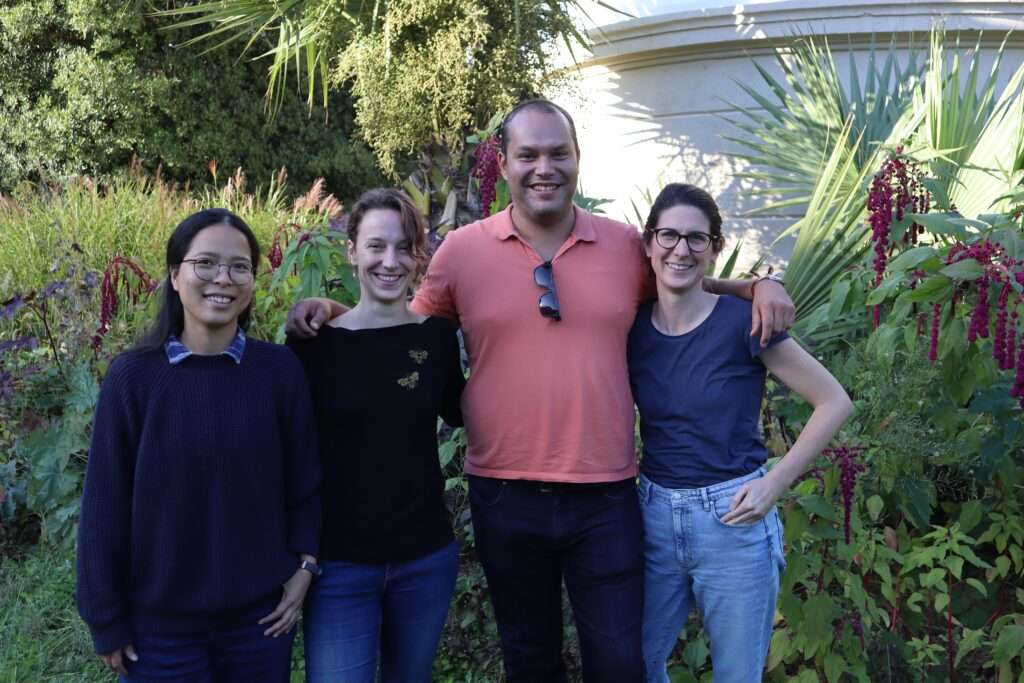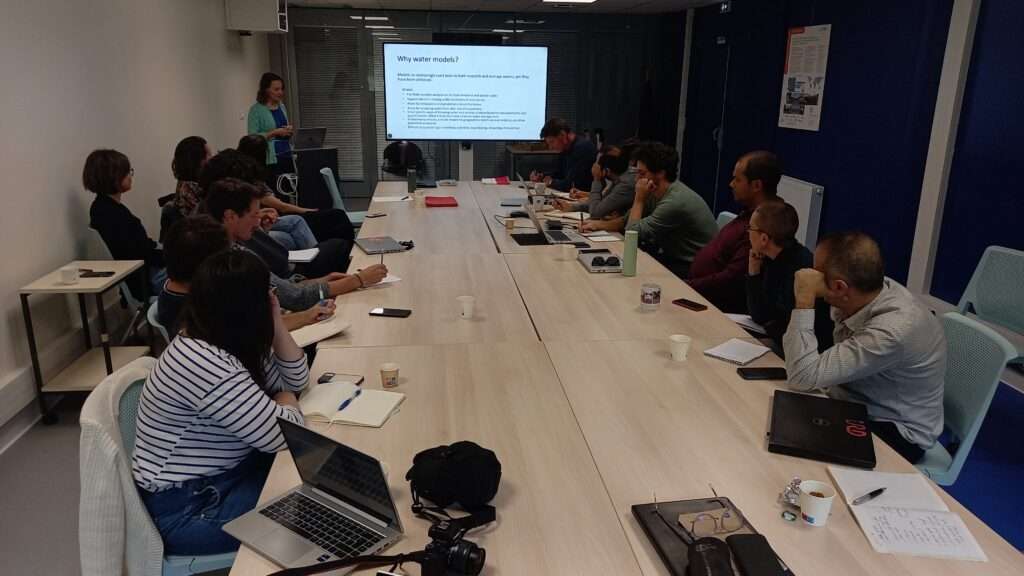MAK’IT hosts a new CAT group about Modelling practices in water governance
Rossella Alba, Bich Tran, Jonatan Godinez and Rozemarijn ter Horst (two postdocs, two doctoral researchers) were in Montpellier from 30 September to 10 October to explore the many social and political factors that influence models and the modelling of water. Supported by MAK’IT within the Constructive advanced thinking call, their research project is on “Controversial tools: researching modelling practices in water governance“.

The development and use of quantitative models in water research and practice is both dominant and growing, largely driven by recent technological developments. Although often presented as objective and neutral, models are controversial tools. They offer insights into predicting future conditions of water systems and opportunities to promote an integrated approach to addressing water-related challenges, while addressing the complexities associated with managing fugitive resources such as water. However, models and modelling are specific ways of knowing about water, based on measurement and quantification. Above all, models are profoundly shaped by the many, sometimes arbitrary, choices of the actors involved in the modelling process and by the context in which they are developed. Through this project, we aim to collectively explore modelling as it is used in water management and governance.
MAK’IT facilitated connections with G-EAU, where over 160 researchers work on water, from different disciplinary perspectives. In a seminar at G-EAU, we presented our ideas on reflexive and situated modelling, and how to design the modelling process with the modellers, funders, commissioners and communities while considering power dynamics between these actors. We feel much welcomed by the supportive and constructive feedback from modellers, social scientists, and those working interdisciplinarily at G-EAU. Fueled by this cross-fertilization and enthusiasm, we strategised about how to turn our insights and ideas into comprehensive research proposal(s) and to establish a long-term research agenda for modelling for just water transformations in our lines of work.
During their two-week stay in Montpellier, they interviewed researchers from the water science community, including leading scholars from the G-EAU research unit. They presented their CAT project on Thursday 3 October.

The Constructive Advanced Thinking call offers teams of early career researchers (three to five people) time and space for reflection and discussion in some of the best research environments Europe has to offer. The residencies are funded by NetIAS, of which MAK’IT is a partner. Previously, Rossella Alba’s group has been to the Swedish Collegium for Advanced Study in Uppsala and the Institute for Advanced Studies in Paris.